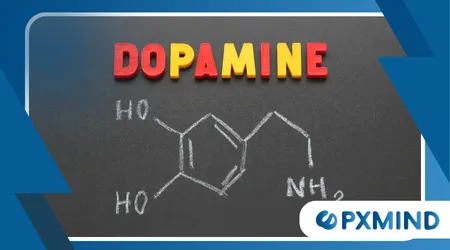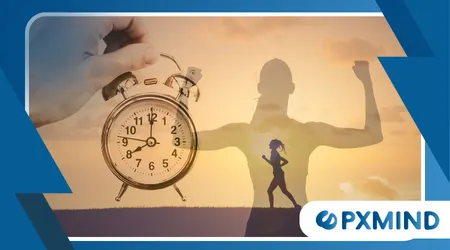The Role of Dopamine in Motivation and Reward

Role of dopamine in motivation and reward. The human brain, a universe of intricate connections, holds a key player in our everyday actions and desires.
Anúncios
This molecule is not merely a chemical; it’s the conductor of our inner orchestra, dictating our pursuit of goals and the satisfaction we feel upon achieving them.
Understanding its mechanisms is crucial to grasping the very essence of human drive.
The Dopamine Blueprint: Beyond Simple Pleasure
For decades, dopamine was narrowly defined as the “pleasure molecule,” a simplistic view that fails to capture its true complexity.
While it plays a role in the feeling of pleasure, its primary function is far more sophisticated. It’s about anticipation, a forward-looking signal that propels us to act.
It’s the “wanting,” not just the “liking,” that truly defines the role of dopamine in motivation and reward.
Consider the anticipation of a delicious meal. The thought alone triggers dopamine release, motivating you to prepare it or go to a restaurant.
The actual act of eating might feel good, but the initial drive to get the food is the true magic of dopamine.
This distinction, highlighted by researchers like Kent Berridge, revolutionized our understanding of this neurotransmitter.
Read more: Why Sleep Is Essential for Brain Health
It acts as a predictive signal. Our brain learns which actions lead to a reward, and dopamine is released in anticipation, not just upon receiving it.
This predictive firing is a powerful learning tool, reinforcing behaviors that lead to a positive outcome. It’s a feedback loop that shapes our habits and directs our attention.
The Two Sides of the Dopamine Coin: Motivation and Learning
Dopamine’s influence is a two-part story. First, there’s the motivational component, the impulse that says “go for it.”
Second, and equally important, is its role in learning and memory. When a reward is better than expected, the brain gets a dopamine surge, solidifying the memory of the action that led to it.
This dual function explains why we can get hooked on things like social media. A notification, a “like,” or a new follower provides an unpredictable reward.
The brain, craving that next hit, learns to constantly check the phone, creating a powerful behavioral loop.
This same mechanism, however, is what allows us to learn new skills and pursue complex goals.
A great example is a musician practicing a difficult piece. The initial struggle might be frustrating.
Read here: The Neuroscience of Emotions: How Feelings Are Created
However, each small improvement and successful note provides a mini-reward, a dopamine pulse that reinforces the correct movements.
Eventually, the brain associates the practice with the reward of mastery, making the hard work feel worthwhile.

Dopamine in the Digital Age: Navigating Modern Rewards
Our modern world is filled with easy and constant dopamine triggers, from scrolling through social media to binge-watching TV shows.
These “supernormal stimuli” can hijack our reward system.
The instant gratification they provide can make it harder to engage in activities that require delayed gratification, like studying for an exam or exercising.
This is not to say that all digital rewards are bad. Gamified learning apps, for instance, use dopamine to make education more engaging.
See how interesting: Daily Rituals to Boost Emotional Resilience
The challenge lies in balance and awareness. Understanding how these systems work allows us to be more intentional about our choices.
The role of dopamine in motivation and reward can be a tool or a tyrant, depending on how we wield it.
A compelling analogy for this is a boat’s sail. Dopamine is the wind; it can propel you toward your destination or send you off course if you don’t steer properly.
Without wind, the boat won’t move, but too much wind without direction is just chaos. We must learn to set our sails, directing our motivation toward meaningful goals.
| Dopamine Function | Description | Example |
| Prediction | Signals the likelihood of a future reward. | The thought of a good cup of coffee in the morning. |
| Motivation | Drives us to pursue a goal or action. | Getting out of bed to brew that coffee. |
| Reinforcement | Strengthens the neural pathways for rewarding behaviors. | Remembering where the best coffee shop is located. |
The Science Behind the Drive: Real-World Evidence
The intricate nature of the role of dopamine in motivation and reward is supported by extensive research.
A study published in The Journal of Neuroscience in 2023 demonstrated a direct correlation between dopamine levels in the ventral striatum and a person’s willingness to exert effort for a reward.
Participants with higher dopamine activity in this area were more likely to choose tasks that required greater effort but offered a larger prize.
This provides concrete evidence that dopamine isn’t just about pleasure; it’s about the very drive to act.
This is a key distinction. It’s not simply a matter of feeling good, but of feeling the pull to do something.
For example, an athlete training for an Olympic event isn’t just seeking the fleeting pleasure of a win.
They are driven by the anticipation of the victory, the sense of accomplishment, and the recognition that comes with it. Dopamine fuels the grueling hours of practice.
According to a recent report from the National Institutes of Health, over 40% of people surveyed in a 2024 study reported using technology to actively track and gamify their personal goals, a behavior largely driven by the desire for small, frequent dopamine hits.
This statistic highlights how society is increasingly harnessing this neurochemical process, whether consciously or not.

Optimizing Your Dopamine System for a Fulfilling Life
So, how can we leverage our understanding of the role of dopamine in motivation and reward? The key is to seek balance.
Instead of chasing instant, fleeting rewards, we can cultivate habits that lead to sustainable, long-term satisfaction.
Small, achievable goals can provide a consistent stream of dopamine, reinforcing a positive cycle.
Breaking down a large project into smaller steps, for instance, offers a series of mini-victories. This keeps motivation high and prevents burnout.
Furthermore, activities that require focus and effort, such as learning an instrument or mastering a craft, build a more resilient dopamine system.
The rewards may not be instant, but the satisfaction is deeper and more lasting.
What if we could retrain our brains to find joy in the process, not just the outcome? This is the fundamental challenge of our time.
In conclusion, dopamine is a far more complex and essential molecule than previously thought.
It’s the engine of our ambition, the architect of our habits, and the catalyst for our growth. The role of dopamine in motivation and reward is a powerful force that shapes our lives.
By understanding and consciously directing it, we can move from being passive recipients of pleasure to active creators of a more meaningful existence.
Frequently Asked Questions
Is dopamine the only thing that motivates us?
No. While dopamine is a crucial component, motivation is a complex process that also involves other neurotransmitters, such as serotonin and norepinephrine, as well as psychological and environmental factors.
Is technology addiction caused by dopamine?
Technology addiction is strongly linked to the dopamine reward system. The unpredictable and instant nature of digital rewards (like likes and notifications) can create an addictive cycle, causing the brain to crave more.
Can I “reset” my dopamine system?
It is possible to influence your dopamine system through conscious habits.
Activities like physical exercise, meditation, spending time in nature, and pursuing long-term goals can help rebalance the brain’s response to rewards, reducing dependency on instant gratification.
++ Dopamine
++ Seeking motivation and reward: Roles of dopamine, hippocampus, and supramammillo-septal pathway
